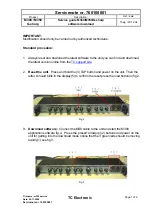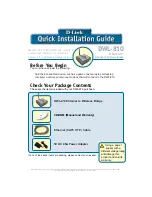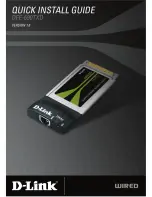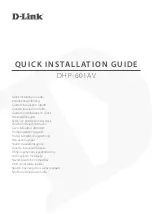
The Workgroup in the Larger Network
5-17
Network Design
What Is a Backbone?
A backbone is a network segment or cable which is used to provide for the
interconnection of a number of smaller workgroups or self-contained networks.
The outlying networks, workgroups, or hubs communicate with one another
through the backbone network.
The use of a dedicated network acting as a backbone, tying all the separate
networks together, is of benefit for several reasons.
•
Using a single network to handle the extremely important connections
between networks allows Network Designers to use highly reliable
technologies and cables. These designs are frequently expensive, and using
them, initially, in the backbone network provides the benefits of these
technologies or media without requiring the expense of providing that level of
service to all points of the network.
•
A backbone network can be migrated out to the workgroups as the
facility-wide network grows. As more users are added, it is often much easier
to attach a concentrator or hub to a small backbone network than to continue
expanding workgroups that may be already quite congested. In addition, the
backbone can provide a point from which a higher-speed technology can be
‘painted out’ to the rest of the network as needs dictate and as money becomes
available.
•
Since the amount of communications passing between several workgroups or
hubs in an entire facility or campus is often quite large, backbone networks
often use higher-speed networking technologies than those of the workgroup
networks. A very common workgroup and backbone scenario involves several
Ethernet workgroups in a building or campus connected to an FDDI backbone.
This offers the communications passing between the separate Ethernet
networks, operating at under 10 Mbps, to access a highly reliable and available
100 Mbps network for communications between workgroups.
Methods of Configuring Backbones
Backbone networks can be set up in a number of different ways. This Networking
Guide presents three of the most common means of configuring backbone
networks. Almost any backbone network implementation may be designed from
the following basic backbone types:
•
Distributed Backbone
•
Collapsed Backbone
•
Device Collapsed Backbone
Summary of Contents for Cabletron BRIM-F6
Page 1: ...Cabletron Systems Networking Guide Workgroup Solutions ...
Page 2: ......
Page 4: ...Notice ii ...
Page 8: ...Contents vi ...
Page 22: ...Review of Networking 2 10 Token Ring ...
Page 62: ...Network Design 5 22 The Workgroup in the Larger Network ...
Page 106: ...Token Ring 8 8 Token Ring Workgroup Design ...
Page 118: ...Charts and Tables A 12 Networking Standards and Limitations ...
Page 130: ...UTP to UTP Glossary 12 ...
















































